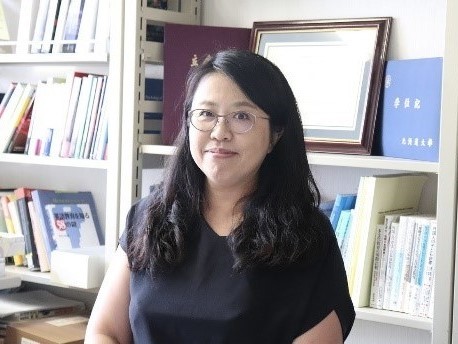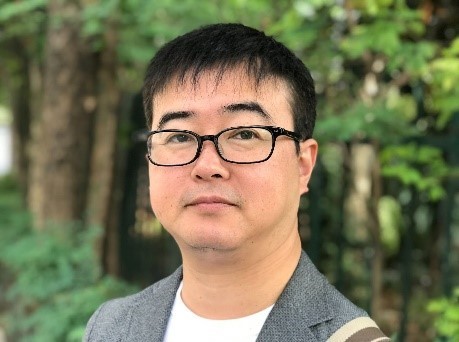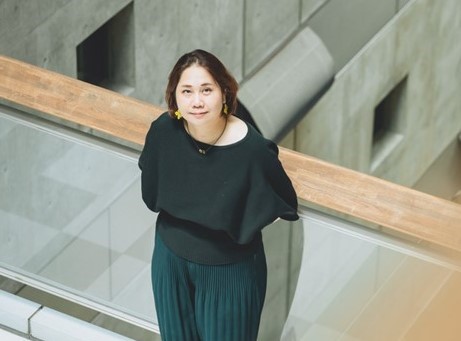
Japanese Language Education Seminar with UNSW (Aug 2025)
「わたしのことばでわたしを語る:俳句実践編」
Telling about myself through my own voice: Haiku Version
「わたしのことばでわたしを語る:俳句実践編」
The seminar will be conducted in Japanese.
※本セミナーは日本語で行われます。
For our nineteenth Japanese education seminar co-hosted with UNSW, exploring the theme of raising Japanese-speaking children in Australia, we welcome three professors from universities in Japan to explore how children in Australia can engage with the art of haiku.
ニューサウスウェールズ大学と共催のもと「オーストラリアで日本語を使う子どもを育てる」というテーマでセミナーを行っています。
第19回のオンラインセミナーでは、日本の大学の先生方3名を迎え、オーストラリアで子どもたちと俳句を詠む実践について考えます。
【Message for participants】
Our group is conducting research on TLIT (Translingual Identity Text), a creative practice activity aimed at enhancing the language skills, particularly literacy (writing skills), of culturally and linguistically diverse children (CLD children). TLIT is a classroom based activity in which bi/multilingual students express themselves using their entire linguistic repertoires, and share the products with each other. In this presentation, the theoretical background of TLIT and the practical application of its haiku version in the classroom will be introduced.
Haiku is now spreading not only in Japan but around the world. It is said that haiku is written in over 150 countries and regions and in over 50 languages. When creating haiku overseas, the issue that arises is the use of seasonal words (kigo). Seasonal words are words that express Japan’s climate, geography, flora and fauna, and way of life, but they are rooted in Japanese culture and are difficult to use in other countries. In Brazil, Japanese descendants have developed their own seasonal words and seasonal calendar to express their identity as Brazilians. Drawing inspiration from this haiku activity in Brazil, we propose a translingual and transcultural haiku creation activity for schools. Australia is also located in the Southern Hemisphere and has its own unique ecosystems, climate, and culture. The presentation will invite the audience to the discussion to explore the question: How can people create haiku that respect their own culture?
【参加される方へのメッセージ】
私たちの研究グループは、文化的言語的に多様な背景を持つ児童生徒(Culturally and Linguistically Diverse Children:CLD児)のことばの力、とくにリテラシー(書く力)を高めることを目的としたTLIT(トランスリンガル・アイデンティティ・テキスト)という創作実践活動の研究をおこなっています。TLITとは、バイリンガル・マルチリンガルな人が、自分のことばのレパートリーすべてを使って創作を行い、共有する活動のことです。今回はTLITの活動の理論的背景と、その俳句ヴァージョンの授業実践を皆さんに紹介したいと思います。
俳句は現在、日本だけでなく全世界に広がっています。150以上の国・地域、50以上の言語で俳句が作られているそうです。俳句を海外で創作するとき、問題となるのは季語です。季語は日本の気候や地理、動植物、生活を表現する言葉ですが、それは日本の文化に根ざしており、外国では使いにくいです。ブラジルでは日系人が、ブラジルに住む自分たちのアイデンティティを示すためにブラジル独自の季語・歳時記を開発しました。そのブラジルでの俳句活動をヒントに、学校でのトランスランゲージング・トランスカルチュラルな俳句創作活動を提案したいと思います。オーストラリアも南半球に位置し、生態系や気候、文化も独自のものがあります。自分たちの文化を尊重する俳句を作るにはどうすればいいでしょうか。ぜひ一緒に考えましょう。
【Heritage Language Information】
- JPF Sydney “Japanese as Community Language” (including past seminars VOD) HERE
- Website of “Australian Network for Japanese as Community Language” HERE
- Access the Facebook group “オーストラリアで日本語を使う子どもを育てる” HERE
- See JPF Sydney Library’s page on heritage-language education HERE
【継承語情報】
 Prof. Aiko Sano
Prof. Aiko Sano
Professor at the College of Letters
Ritsumeikan University, Japan
Aiko Sano is a Professor at the College of Letters at Ritsumeikan University where she teaches courses in English Education and Bi/Multi-lingual Education. She received her MA degree at the Ontario Institute for Studies in Education, University of Toronto, and her Ph.D. at Hokkaido University. Her research interests includes bilingual education, bimodal education for Deaf students, heritage language education, biliteracy education, and second language writing. Her current research focuses on how bi/multi-lingual writers make use of their entire linguistic repertoire to expressively present their voices in their writing. She has been involved with the MEXT funded project which resulted in the publication of “Matrix of Language Development and Acquisition” (2022-2024). She co-edited the translation of “The Translanguaging Classroom: Leveraging STudents Bilingualism for Learning” by García, Johnson, and Seltzer with Prof. Kazuko Nakajima.
佐野愛子 教授
立命館大学 文学部教授
立命館大学文学部教授。専門はバイ/マルチリンガル教育・英語教育。トロント大学OISEでMAを取得し、その後北海道大学で博士号を取得。研究領域はバイリンガル教育、バイモーダルろう教育、継承語教育、バイリテラシー教育、及び第二言語ライティング。近年力を入れているのは、バイ/マルチリンガルが自らの〈声〉を表出した文章を書くにあたってどのようにその言語レパートリー全体を活用できるか、という研究である。2022-2024年の文部科学省委託研究で、「ことばの発達と習得のものさし」の作成に携わる。また、中島和子氏と共に、ガルシア・ジョンソン・セルツァーによる「トランスランゲージング・クラスルーム:子どもたちの複数言語を活用した学校教師の実践」を監訳。
***************************************************************************************
 Prof. Yoshikazu Shiraishi
Prof. Yoshikazu Shiraishi
Professor at the faculty of Communication and Culture
Shoin University, Japan
Yoshikazu Shiraishi is a professor at the faculty of Communication and Culture, Shoin University where he specializes in Brazil Haiku, classical Japanese literature and Japanese language education. After completing graduate studies at the University of Tokyo with a focus on The Tale of Genji and waka poetry, he taught Japanese to international students at language schools in Tokyo. During his tenure as a visiting researcher at the University of São Paulo, Brazil, he became actively involved in the Brazilian haiku movement. Upon returning to Japan, he earned a doctoral degree—the first of its kind—on Brazilian haiku from Kanazawa University. His academic work bridges classical Japanese literary forms with contemporary language education. He has conducted extensive research and practice on renku (linked verse) as a collaborative literary activity among international students. Currently, his research focuses on international haiku movements—particularly in Brazil—and tropical saijiki (seasonal word compendiums), with the aim of developing pedagogical approaches to haiku in heritage and Japanese language education. His forthcoming monograph, Transcultural Developments in Brazilian International Haiku: Goga Masuda and the Border-Crossing Poetics of Collaborative Literature (December 2025, Shumpūsha), explores the dynamic intersections of literature, migration, and cultural hybridity.
白石佳和 教授
松蔭大学 コミュニケーション文化学部教授
松蔭大学コミュニケーション文化学部教授。専門はブラジル国際俳句、日本古典文学および日本語教育。東京大学大学院で『源氏物語』と和歌を中心とした研究に従事した後、東京都内の日本語学校で留学生に日本語を指導。ブラジル・サンパウロ大学の客員研究員として在籍中には、ブラジル俳句活動に積極的に参画。帰国後、金沢大学大学院にてブラジル俳句に関する研究で日本初となる博士号を取得。日本の古典文学形式と現代の言語教育を架橋する学術的取り組みを行い、留学生との連句(協働的な連作詩)の実践と研究も行う。現在は、ブラジルを中心とした国際俳句のトランスカルチュラルな展開と、熱帯地域の歳時記(季語辞典)に焦点を当て、継承語教育および日本語教育における俳句の教授法開発を目指している。新著『ブラジル国際俳句のトランスカルチュラルな展開―増田恒河と越境する座の文学』(2025年刊行予定、春風社)は、文学・移動・文化的ハイブリディティの動的交差を探究するもの。
***************************************************************************************
 Prof. Makiko Matsuda
Prof. Makiko Matsuda
Professor at the Graduate School of Humanities
Tokyo Metropolitan University, Japan
Makiko Matsuda is a Professor at the Graduate School of Humanities, Tokyo Metropolitan University. Her areas of expertise are applied linguistics and Japanese language education. In 2020, she founded and has since managed CLD-online, an online community for linguistically and culturally diverse individuals. Together with Professor Chihiro Thomson Kinoshita (UNSW), she serves as co-director of the International Translingual Network and co-organized the first International Conference for Translingual Network held in Sydney in September 2023. Her major publications include Language and Culture in the Nikkei Context (Chief editor, Kuroshio Publishers, 2022).
松田真希子 教授
東京都立大学大学院 人文科学研究科教授
東京都立大学大学院人文科学研究科教授。専門は応用言語学、日本語教育。2020年言語的・文化的に多様な人々のオンライン交流コミュニティCLD-onlineを立ち上げ、運営。UNSWトムソン木下千尋教授と共に国際繋生語ネットワーク共同代表を務め、2023年9月にシドニーで第一回国際繋生語学会を開催。主な著書に『日系をめぐることばと文化』(松田真希子他編、 くろしお出版、2022)などがある。
Please register your details in English ONLY.
ご登録は英語のみでお願いします。
**The registration period is July 4, 2025 9am till August 18, 2025 9am AEST. 登録期間は2025年7月4日9amから2025年8月18日9am AESTまでとなっております。**
Note:
Seminar Zoom link will be sent to your registered email on August 22, 2025 (Friday) at 3pm AEST (a day before the seminar date).
If you have not received this email by then, please contact us immediately.
付記:
セミナー実施前日の2025年8月22日(金)午後3時 AESTにご登録いただきましたメールアドレスにZOOMリンクをお送りいたします。
万が一送付されない場合には、早急にご連絡ください。
SEMINAR DETAILS
August 23, 2025 (Saturday)
4pm-6pm AEST
*Online conference room opens at 3:30pm AEST
VENUE
This event will be held online via Zoom (web conference system).
ADMISSION
Free: Registrations essential
REGISTRATION OPEN
July 4, 2025 (Friday) at 9am AEST
REGISTRATION DEADLINE
August 18, 2025 (Monday) at 9am AEST
ENQUIRIES
(02) 8239 0055
Co-presented by


